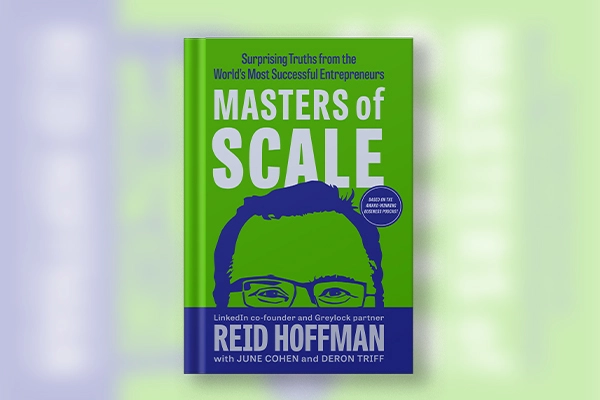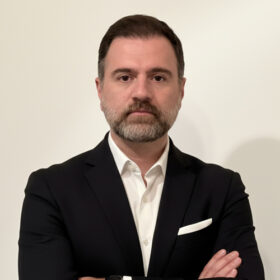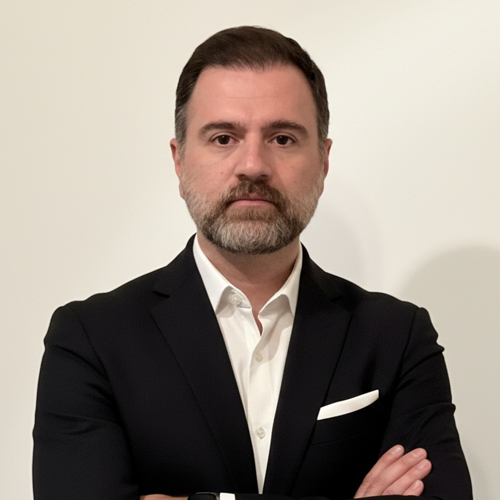Masters of Scale

The world of entrepreneurship is saturated with conventional business advice—maxims repeated so often they become a strategic sedative. Yet the playbook used by the world’s most successful founders is built on a singular, contrarian mindset that treats these accepted truths as obstacles to overcome. These are the hard-won insights that separate legendary ventures from the rest. In their book Masters of Scale, Reid Hoffman, June Cohen, and Deron Triff distill this unconventional wisdom from iconic entrepreneurs like Bill Gates, Sara Blakely, and Brian Chesky. This analysis explores four of their most impactful lessons—not as isolated tips, but as interconnected pillars of a contrarian playbook that challenges the very foundations of how empires are built.
1. To Scale Big, You Must First Do Things That Don’t Scale
It’s one of the great paradoxes of venture building: the path to massive, automated scale begins with manual, handcrafted, and seemingly inefficient actions. While most founders are obsessed with building systems that can serve millions from day one, the masters of scale understand that you must first hand-serve your initial customers, winning them over one by one to build a product that inspires deep, fanatical loyalty.
This principle is perfectly illustrated by the early days of Airbnb. On the advice of Y Combinator’s Paul Graham, co-founder Brian Chesky flew to New York City to meet their first hosts in person. Rather than optimizing scalable marketing plans from his office, Chesky and his co-founder Joe Gebbia went door-to-door. “It’s winter. It’s snowing outside and we’re in snow boots,” Chesky recalls, describing how they personally took professional-quality photos of host apartments to make the listings more appealing. During one visit, a host presented Chesky with a binder filled with pages of detailed suggestions. This wasn’t a complaint; it was a product roadmap. Chesky realized such passionate feedback was a sign they were on the right track. Chesky’s handcrafted approach didn’t just win over users; it built a deep, qualitative understanding of the market that data-driven competitors couldn’t replicate, creating a powerful early moat.
Reid Hoffman summarizes this Zen-like riddle for entrepreneurs:
“This poses an almost Zen-like riddle for entrepreneurs: The first step to scale is to renounce your desire to scale.”
To find the innovations that would eventually define the Airbnb experience, Brian Chesky developed a design exercise he calls the “11-star experience.” He starts by mapping out a 1-star (terrible) and a 5-star (expected) experience. Then, he pushes his team to imagine what a 6, 7, or even an “11-star” experience would look like—the kind of mind-blowing service that might involve getting picked up at the airport by Elon Musk for a trip to space. The goal of this “crazy exercise” isn’t to actually go to space, but to explore the territory between the expected and the impossible to find the innovative “sweet spot” that creates an asymmetrical advantage.
2. The Smartest Entrepreneurs Actively Seek “No”
Conventional wisdom dictates that entrepreneurs must relentlessly pursue “Yes.” But according to Masters of Scale, rejection isn’t failure—it’s high-value data. Hearing “No” repeatedly can be one of the most strategically valuable, albeit painful, experiences for a founder, providing crucial insights that a quick “Yes” would have obscured.
Kathryn Minshew, co-founder of the career development site The Muse, was turned down 148 times by investors while trying to raise her seed round. The rejections were relentless and often dismissive, colored by the biases of a homogenous investor class. They told her things like, “Aren’t you worried that you’re going to lose all your users once they turn thirty and have babies?” and “I think you’re going to really have a hard time finding women who care about their careers once you go outside of the coasts.” The process was agonizing, but she persisted.
“And when we finally raised our seed round, I went back and counted. It was both painful and gratifying at the same time—looking at all those names, and thinking, I remember that no. I remember that no. I remember that no. And they sting; every one stings.”
Far from being a sign of a flawed idea, those 148 “Nos” made her business stronger. Some sharpened her view on who her user was—and who her user wasn’t. Some helped her grasp how her competition might think. And some gave her an early warning about the ways her company might fail. Reid Hoffman reinforces this idea, explaining that when he pitches an idea, he wants a “polarized reaction.” Unanimous consent is a “concerning sign” that an idea is too obvious. A mix of “You’re out of your mind” and “I see it” is a much better indicator that you’re onto something truly big and contrarian.
Just as Minshew used rejection as data to refine her path forward, iconic founders like Phil Knight learned that their own past successes could provide the most dangerous data of all—imprinting lessons that had to be actively unlearned.
3. Your Past Success Can Be Your Biggest Obstacle
Success engraves its lessons onto a founder’s mind. The strategies that worked in the past can feel like ironclad laws, but in a rapidly changing market, they become the very anchors that prevent future growth. For leaders aiming for massive scale, the ability to “unlearn” is a hidden but essential strategic imperative. What got you here won’t get you there, and you must be willing to abandon your most cherished beliefs to adapt and survive.
Phil Knight built Nike by making high-performance running shoes for serious athletes. The company’s formula was simple: if a shoe performs well and a great athlete wears it, it will sell. They actively ignored advertising and appearance. This worked beautifully until the 1980s, when the aerobics craze hit and the more fashion-focused Reebok started getting their “brains beat out.” To survive, Knight had to unlearn his core beliefs.
He started by unlearning his deep-seated hatred of advertising. During his first meeting with ad agency founders Dan Wieden and David Kennedy, Knight’s opening line was, “I just want you to know: I hate advertising.” That painful but necessary pivot forced Nike to become a brand, not just a shoe company. It led to iconic, culture-shaping campaigns like “Just Do It” and transformed the business into the global powerhouse it is today, demonstrating the necessity of unlearning core competencies to avoid obsolescence.
The legendary media executive Barry Diller reinforces this principle, emphasizing the power of approaching new challenges with a beginner’s mind.
“I learned really early,” he says, “that you are best when you know nothing.”
This willingness to discard “known” truths extends beyond a company’s internal playbook; it’s also crucial when interpreting external signals from the most important source of all: the customer.
4. Your Customers Are Poor Judges of the Future
The disconnect between stated preference and actual behavior is a classic trap for entrepreneurs, but Marissa Mayer’s early work at Google provides a masterclass in using behavioral data to sidestep it. While user feedback is critical, the most successful founders learn to prioritize observation over conversation, understanding that actions reveal truths that words often conceal.
In Google’s early days, Mayer ran an experiment to determine the ideal number of search results to display per page. When her team surveyed users, the feedback was clear: people said they wanted thirty results. Yet when Google ran A/B tests with different versions of the search page, user behavior told a completely different story. Pages with only ten results performed far better.
The reason for this discrepancy was a single variable users couldn’t articulate but viscerally felt: speed. Pages with thirty results loaded just a split second slower, and users subconsciously rejected that tiny delay. Their actions showed that minimizing market friction was more important to them than the quantity of results.
“Time matters a lot more to people than they usually articulate,” Marissa said. “Waiting that split second longer for more results was something people didn’t want to do—especially since the first ten results were generally good enough.”
Mark Zuckerberg discovered a similar pattern at Facebook. When the social network expanded from Harvard to other schools, the existing users complained loudly. Yet their actual usage of the site only increased. This proves a key insight: “People are very poor at predicting their own reactions to new things.” Trusting behavioral data creates an asymmetrical advantage that competitors who rely on surveys will miss.
Conclusion: Your Turn to Challenge Convention
The path to scale is paved with paradox. The lessons from Masters of Scale reveal that building an empire requires a radical inversion of standard business priorities: focusing on the individual to reach the masses, seeking rejection to find validation, abandoning old strengths to build new ones, and trusting silent actions over loud opinions. The world’s most iconic entrepreneurs built their empires not by following the rules, but by having the strategic courage to write new ones.
They achieved greatness by questioning the status quo. What piece of “common knowledge” are you holding onto that might be holding you back?
Reid Hoffman is a successful entrepreneur, executive, and investor, best known as the co-founder of LinkedIn, the world’s largest professional network with over 650 million members. He also served as executive vice president and founding board member at PayPal. Hoffman has helped many well-known companies like Facebook and Airbnb grow quickly, using his expertise in consumer behavior and rapid business scaling, called “blitzscaling.” He hosts the popular Masters of Scale podcast and has co-authored several bestselling books, including Blitzscaling and The Alliance. His co-authors, June Cohen and Deron Triff, are founders of the media company WaitWhat and previously worked at TED, creating projects like TED Talks online and the TED Open Translation Project.
Book details
- Title: Masters of Scale
- Explanatory Title: Surprising Truths from the World’s Most Successful Entrepreneurs
- Author: Reid Hoffman
- Publisher: Crown Currency
- Publication Date: September 7, 2021
- Print Length: 304 pages
- ISBN-10: 0593239083
- ISBN-13: 978-0593239087
- Category: Venture Capital / Entrepreneurship / Business Management

